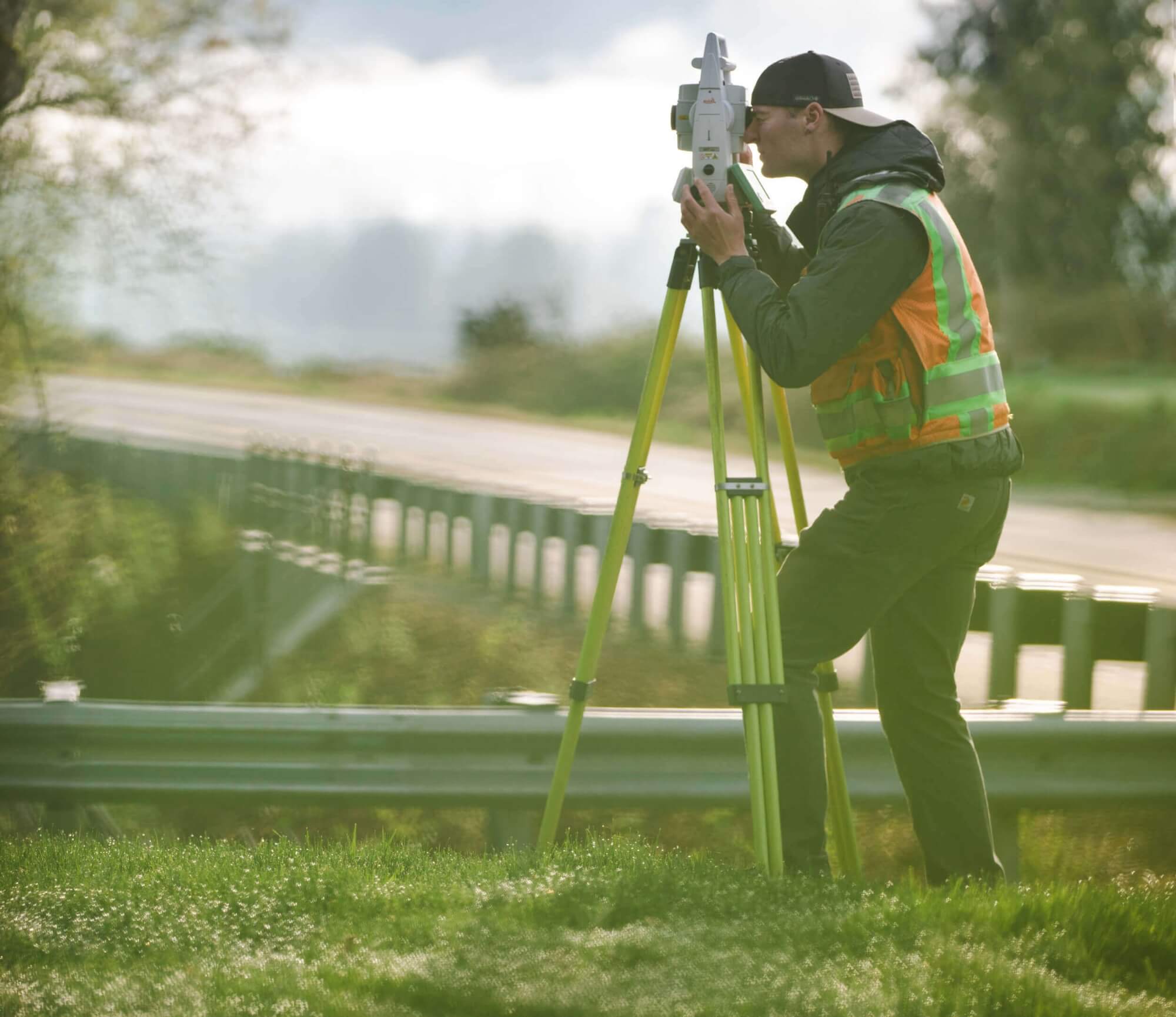Why Terrane.
The definition of steep slopes can be dependent on municipal code and can vary from city to city. The City of Seattle defines a steep slope as “an incline of 40% or more with 10 feet of vertical rise over 25 feet or less.” Most jurisdictions that require ECA surveys can expand limits of a topographic survey by an additional 25 feet around the perimeter of the property, enlarging the survey mapping area. We are thorough and detailed on the drafting requirements for identifying 40% steep slopes and delineating the specific ECA steep slope areas on the final survey.
Ultimately, the limits and extents of steep slopes and associated setbacks are commonly reviewed and approved by a geotechnical engineer and/or the reviewing agency. Completing a project in an ECA generally requires additional consultants (geotechnical engineers, for example) to get the project through permitting review and correction cycles, and we are all reliant on one another as a team for a successful project.
With our extensive project experience with a multitude of professional team members and jurisdictions throughout the PNW we have the resources to ensure your project meets all parties’ requirements for success.

